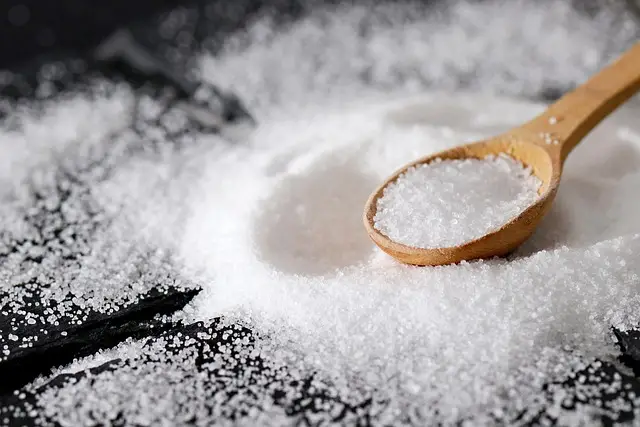
Salt may not be the first thing people consider when planning their long-term emergency supply storage. In a disaster or emergency survival situation, salt will be a vital resource. Not just because it makes food taste great but because our bodies can’t function without it.
What you Need to Know About Emergency Salt Storage
- You need about 10 pounds of salt per person per year.
- Pure salt without additives has the longest shelf life.
- Store salt in mylar bags inside buckets for maximum long-term storage.
- Do not store salt in metal containers like cans because they will rust.
For information on the best storage containers, check out our post here.
Why Store Salt?
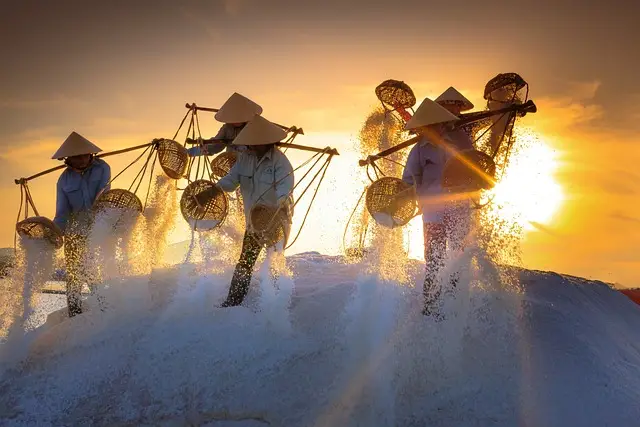
Salt has been one of the most impactful substances in human development. For much of human history, salt was one of the most valuable resources for human existence. It was more precious than gold. Without salt, humans would still be living like hunter-gatherers.
Health Benefits
Our bodies utilize the elements in salt in many ways. Most importantly, it contains electrolytes our bodies use to regulate fluid balance, nerve impulses, and muscle function. Quite simply, you will die without consuming enough salt.
If you’ve ever gotten muscle cramps when exercising, it was probably due to a lack of electrolytes (like those found in salt).
Food Preservation
You can use salt to preserve many foods. Salt-based food preservation techniques use salt to prevent the growth of bacteria, fungi, and other organisms, which can increase a food’s shelf life.
For thousands of years, salt has been used to preserve food. You can take a piece of meat, pack it in salt, and keep it for up to a year without refrigeration.
Flavor Enhancement
Food tastes better with salt. I put it on practically anything I eat. The difference in flavor that salt creates is simply profound. Having flavorful and delicious food can be a huge moral booster when you’re down bad.
If you’re in a situation where you need to dig into your prepper supplies, things probably aren’t going too well.
How Long can Salt Last in Long-Term Storage?
Salt that is pure and free from additives can have an indefinite shelf life. If stored correctly, salt will maintain its flavor and preservative properties forever.
Salt will absorb moisture if it is exposed to air. It is best to store your salt in an airtight container to prevent any clumping due to moisture absorption.
Will Salt Lose Flavor in Storage?
The short answer is no; salt won’t degrade or lose flavor when stored correctly. Keeping your salt in an airtight container in a cool, dry place will last a very long time.
How do I Store Salt Long Term?
Storing salt is reasonably easy compared to many things. The best way to store salt long-term is by keeping it in an airtight container in a cool, dry place away from light. There is no need to use oxygen absorbers when packing your salt for long-term storage. I like to buy bulk salt and repackage it.
What are the Best Varieties of Salt for Food Storage?
When you store salt long term, choose pure salt varieties. These are salts with no additives like those found in iodized salt.
Table Salt
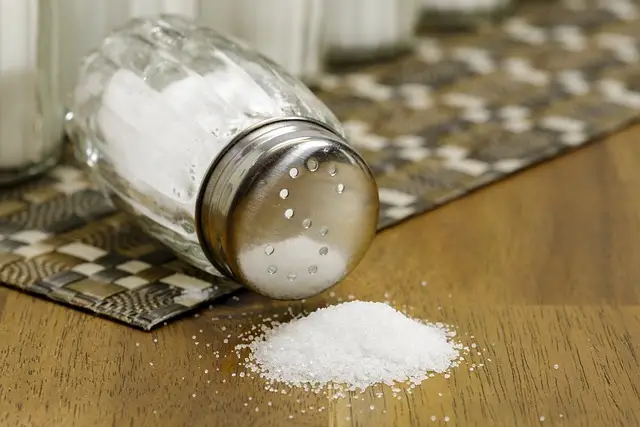
This salt is what many commonly think of when it comes to salt. Many forms of table salt may have anti-caking agents to prevent clumping, but they will not impact shelf life. Choose a variety that is not iodized.
Uses: General consumption and culinary purposes.
Shelf life: Indefinite.
Iodized Salt
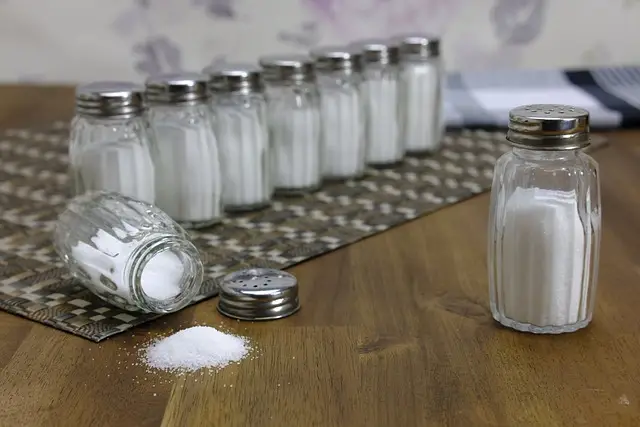
This is salt that has iodine added to it for nutritional purposes. Iodine is an essential nutrient; iodine deficiency can cause serious health problems. If you eat a balanced diet, iodized salt is not a necessity.
Uses: General consumption and culinary purposes.
Shelf life: 5 years
Pink Himalayan Salt
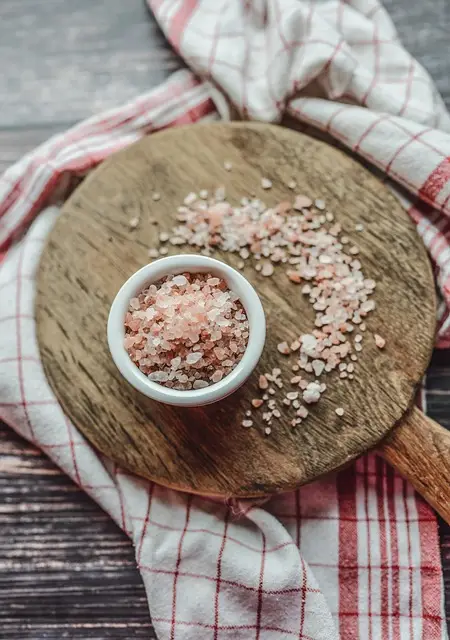
Pink Himalayan salt is a pure form of salt mined in the Himalayas. It contains trace minerals and naturally contains iodine. I like this salt for its flavor; it does not have microplastics in some sea salt.
Uses: General consumption and culinary purposes.
Shelf life: Indefinite.
Canning and Pickling Salt
Canning salt is pure sodium chloride. This is the best salt to use for canning because it does not contain any additives. If you use other salts for canning, it will turn the liquid cloudy.
Uses: Canning and pickling, general consumption, culinary purposes
Shelf life: Indefinite.
Kosher Salt
Kosher salt is a coarse, flaky salt commonly used in cooking and meat preparation. I like using it when cooking because it’s easy to pinch between my fingers. Kosher salt comes in many varieties, some with additives and some without. Diamond crystal kosher salt contains no additives. Morton brand includes anti-caking agents. Check the label depending on your needs.
Uses: Culinary purposes, canning, and pickling, general consumption
Shelf life: Indefinite if a pure variety
Sea Salt

This is salt derived from sea water. Some sea salt is mined and some is created by evaporating seawater. There are numerous varieties. Some of which contains additives like iodized sea salt. I personally avoid sea salt because many kinds contain micro plastics that I don’t want to consume.
Uses: General consumption and culinary purposes.
Shelf life: Indefinite if pure sea salt
Rock Salt
This is a salt derived from seawater. There are numerous varieties. Some of which contain additives like iodized sea salt. Some sea salt is mined, and some are created by evaporating seawater. I avoid sea salt because many kinds have microplastics that I don’t want to consume.
Uses: General consumption and culinary purposes.
Shelf life: Indefinite if pure sea salt
Salt Substitutes
Don’t waste your time with these.
FAQ
What kind of salt has the longest shelf life?
Any pure salt that has no additives.
Will salt lose its flavor in storage?
No, when stored correctly, salt won’t lose any flavor.
Can I eat water softener salt?
No, this salt has not been processed to food grade and is unsafe to eat.
How much salt should I store in my food storage?
A safe amount is 10 pounds per person per year.
How do I extend the shelf life of salt in the pantry?
Keep your salt in an airtight container in a cool, dark, dry place that will last indefinitely.
Can I store salt in plastic bags?
Yes, although many plastic bags are only partially airtight.
Do you need oxygen absorbers to store salt long-term?
No, oxygen absorbers are not necessary when storing salt.
Can I use the original package to store my salt?
Most packaging is not airtight. Eventually, your salt will absorb moisture from the air and clump.
Can I store salt in mylar bags?
Yes, mylar bags are one of the best containers to store salt. Put the bags in buckets for extra protection.


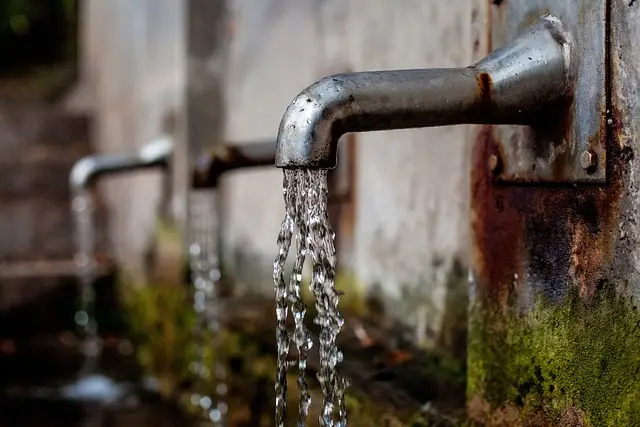


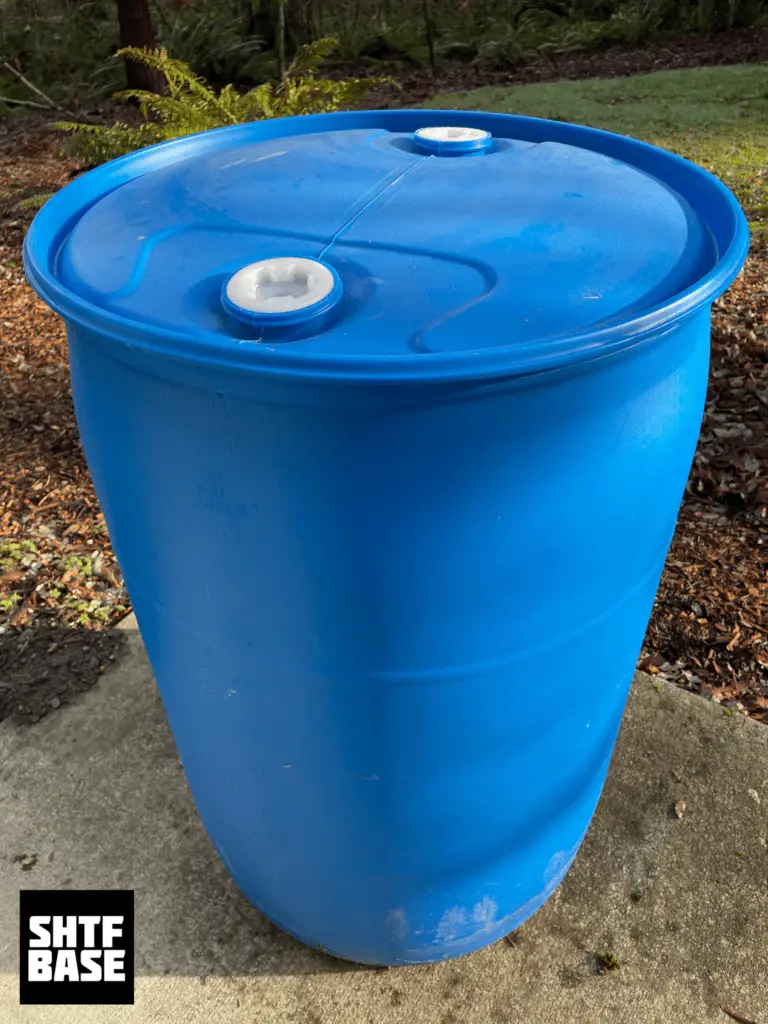
Yup, I like to repurpose containers when possible. For things like salt I like to reuse glass pickle jars or…
I like the efforts you have put in this, regards for all the great content.
- Have you ever considered using unconventional storage containers, such as repurposed items or DIY solutions, to store your emergency…
Thank you for this fantastic post! The information you provided is very useful and well-explained. I especially liked how you…
Greetings! I found this blog post to be incredibly informative and well-written. Your ability to break down complex topics into…